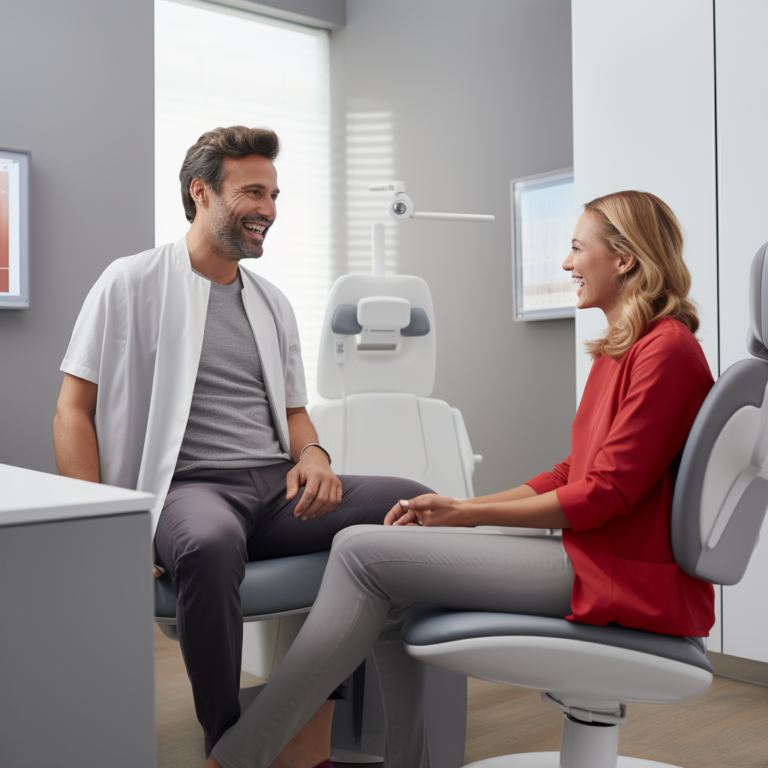Exploring TMS Therapy for ADHD at American TMS Clinics in Scottsdale, AZ
Exploring TMS Therapy for ADHD at American TMS Clinics in Scottsdale, AZ
Transcranial Magnetic Stimulation (TMS) therapy is growing in popularity as a new, non-invasive way to treat Attention-Deficit/Hyperactivity Disorder (ADHD) in Scottsdale, AZ, and other places. Traditional magnetic stimulation (TMS) is best known for helping people with major depressive disorder, but researchers are also looking into how it might help with ADHD, especially in children.

Understanding TMS Therapy for ADHD
Non-Invasive Stimulation
Stimulation: TMS uses magnetic fields to stimulate specific brain areas, potentially impacting neural pathways associated with ADHD symptoms
Expanding Applications
Ready For A TMS Consultation?
Scientific Research on TMS for ADHD
Emerging Studies
Pediatric ADHD
Continuing Investigation
Off-Label Use Disclosure

Ethical Consideration
It is important to know that using TMS for ADHD is still not approved by the company, whether it’s in Scottsdale or somewhere else. This means that the FDA hasn’t approved it yet for this condition.
Informed Decision Making:
Families and healthcare providers must weigh the potential benefits against the lack of FDA approval in considering TMS for ADHD treatment.

BEGIN YOUR RECOVERY TODAY!
Step towards reclaiming your life with our support. Unveil the possibilities with our therapies in Scottsdale, AZ. Call to unfold your path to wellness.
TMS Treatment Method and Accessibility
Convenience and Comfort
Minimal Disruption
Our Approach in Scottsdale

Patient-Centric Care

Support for Families
As research continues to expand our understanding of TMS’s role in treating ADHD, American TMS Clinics in Scottsdale, AZ, remains committed to offering innovative, patient-centered care. While the promise of TMS for ADHD, especially for children and adolescents, is exciting, it’s essential to approach this treatment option with comprehensive knowledge and guidance from healthcare professionals.
Information and Support
We encourage you to reach out to our team for detailed information, helping you make an informed decision about ADHD treatment for yourself or your loved ones.
FAQ
Transcranial Magnetic Stimulation (TMS) is a non-invasive procedure that uses magnetic fields to stimulate nerve cells in the brain, primarily used to treat depression and other mental health conditions. It involves placing a magnetic coil near the scalp to deliver focused magnetic pulses to specific brain regions.
Yes, Transcranial Magnetic Stimulation (TMS) is FDA-approved for the treatment of Major Depressive Disorder. The FDA granted approval after reviewing extensive clinical trials and data demonstrating the safety and efficacy of TMS for this condition. Additionally, certain TMS devices have also received FDA clearance for treating Obsessive-Compulsive Disorder (OCD) and migraine. The approval for these conditions is a testament to the effectiveness of TMS as a non-invasive treatment option. However, it's important to note that the use of TMS for other conditions may still be considered off-label or experimental and should be discussed with a healthcare professional.
TMS is typically recommended for patients with major depressive disorder who have not responded to traditional antidepressants. Eligibility is determined based on medical history, the severity of the condition, and prior treatment responses.
Grursus mal suada faci lisis Lorem ipsum dolarorit more ametion at consectetur elit. Vesti at bulum nec odio aea the dumm ipsumm the ipsum that dolocons rsus consectetur elit.
Many insurance plans now recognize the effectiveness of TMS therapy and provide coverage for conditions like major depressive disorder. The extent of coverage can vary based on the specific insurance provider, the patient's individual plan, and the medical necessity as determined by a healthcare professional. It's important for patients to directly contact their insurance company or work with the TMS clinic's insurance specialists to understand their coverage, including deductibles, copays, and any specific requirements for pre-authorization.
Transcranial Magnetic Stimulation (TMS) is recognized for its safety, with minimal long-term side effects reported. Common side effects like scalp discomfort or headache are usually mild and occur during or shortly after treatment sessions. Long-term side effects are rare, making TMS a well-tolerated option for patients, especially when compared to other treatments like Electroconvulsive Therapy (ECT) or certain medications that can have more significant systemic or cognitive side effects. Ongoing research continues to affirm the safety of TMS, with studies indicating no significant adverse effects over extended follow-up periods.
The FDA's approval of TMS for treating major depressive disorder underscores its safety profile. This approval, based on rigorous clinical trials, reinforces TMS as a safe option with a low risk of long-term side effects. As with any medical treatment, patients should consult healthcare providers to understand the risks and benefits based on their individual health needs.
